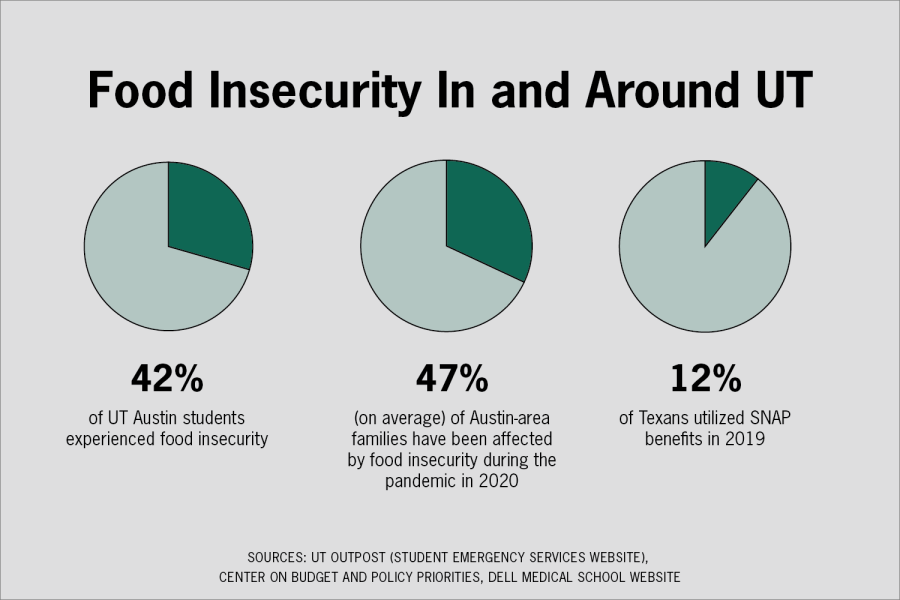SNAP allotment amounts have been extended, provides more food options for low-income students
February 22, 2022
This article first appeared in the Feb. 18, 2022 flipbook.
On Feb. 2, Gov. Greg Abbott announced the extension of increased emergency benefits through the Supplemental Nutrition Assistance Program, which could continue to provide low-income students with more options to obtain food.
Abbott approved for the Texas Health and Human Services Commission to provide $326 million worth of aid to over 1.6 million Texas households, including eligible college students, according to a press release announcing the extension. SNAP, which provides low-income households struggling with food insecurity with monthly payments for food, expanded its recipient eligibility starting in January 2021.
Food insecurity affected anywhere from 33-70% of families in the Austin area in 2020 due to the COVID-19 pandemic, according to a November 2020 UT Dell Medical School press release. Additionally, 42% of UT students experienced food insecurity in 2020, according to a survey.
“Food insecurity isn’t just, ‘I don’t know where my next meal is coming from,’” said Kelly Soucy, director of Student Emergency Services. “It could also mean that they don’t have the funds to access fresh food.”
Students are currently temporarily eligible for SNAP benefits if they qualify for work-study through the University, or if their expected family contribution is zero. Before the eligibility expansion, students had to actively take part in work-study to receive benefits. The benefits and application are free, and students can apply at yourtexasbenefits.com.
Soucy said SES wants to break the stigma around experiencing food insecurity and requesting aid.
“We understand through a lot of research that, if folks don’t have their basic needs met, then they’re not able to meet their goals and that bigger picture of why they’re at school, why they’re wanting to get their degrees,” Soucy said. “Getting food, shelter, safety — all of that is so vital to them being successful in a classroom setting.”
Jennifer Barnoud, a registered dietician with University Health Services and the Counseling and Mental Health Center, said proper nutrition is critical for college students and that requesting aid is nothing to be ashamed of.
“Any degree of food insecurity is going to have physiological and mental health impacts,” Barnoud said. “I really want people to recognize that seeking assistance with food insecurity is totally appropriate. Most people that ever seek food assistance programs, it’s only transient.”



